Review: THE POLTERGEIST at the Arcola Theatre
I’m usually skeptical of one-man-shows. It’s a tremendous amount of pressure to put on an actor to independently carry the weight of a story without other actors to play off against, not to mention the pressure on the audience to invest in a theatrical dynamic with a singular actor. But The Poltergeist caught me off guard with how much I enjoyed it. The play unravelled at breakneck speed, and there wasn’t a single moment when I was lost or bored.
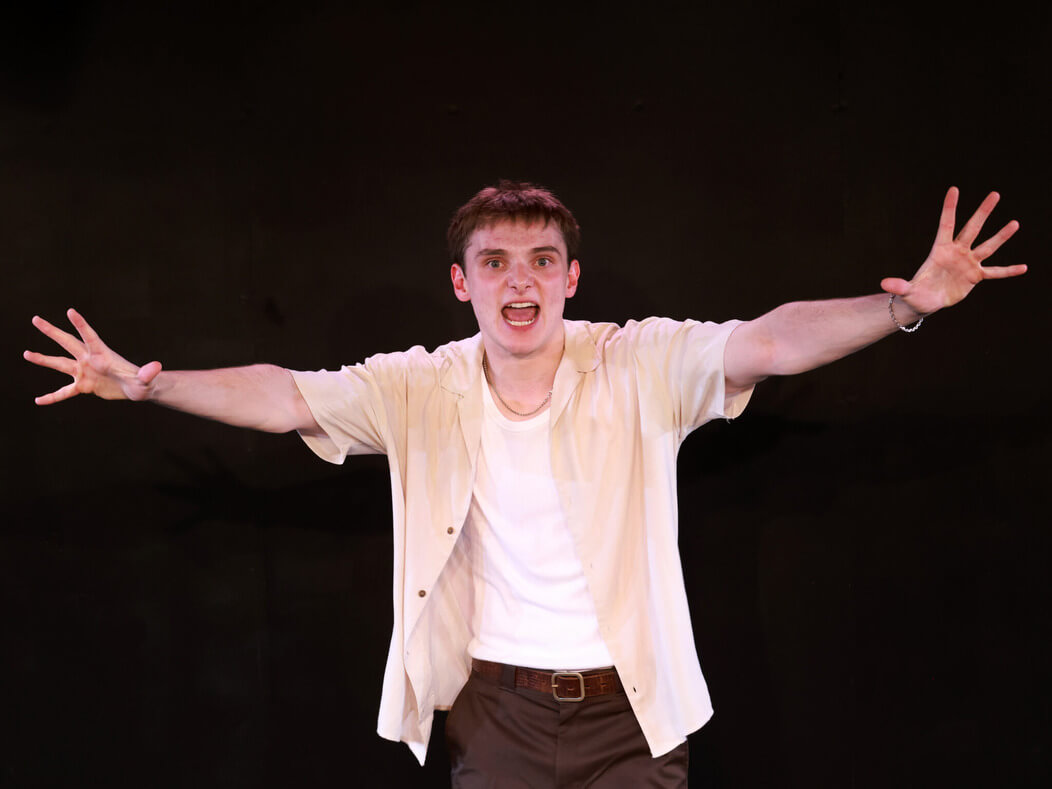 Louis Davidson in THE POLTERGEIST. Photo by Simon Annand.
Louis Davidson in THE POLTERGEIST. Photo by Simon Annand.
Philip Ridley has perfected the art of the dramatic monologue as a form of theatre that is both intimate and invasive of a space. It’s no surprise that The Poltergeist was written during lockdown - it captures that same sense of claustrophobia and jittering anxiety, expressed here through the smallness of the studio in which it was staged.
Sasha is a former child art prodigy whose promising career went up in flames (literally), leaving him bitter, anxious, and utterly cynical about the world around him. The play takes place over the course of a single day, during which Sasha and his well-meaning, optimistic boyfriend Chet attend his niece’s birthday party, where a series of conversations with Sasha’s earnest brother Flynn and affectionate sister-in-law Niamh, and other party guests, reveals the details of Sasha’s complicated past.
Louis Davidson takes on the role of Sasha, narrating the play while simultaneously acting out the other characters’ parts. This would have felt slightly laborious for the audience were it not for the astounding acting talents of Davidson, who commands the stage with a manic energy and physicality that’s impossible to look away from. He is expressive, making often deliberately uncomfortable eye contact with audience members crammed into the tiny space. Most impressively, he cycles rapidly through playing a dizzying number of characters in conversation with each other, shifting voice, accent, and mannerisms so it’s always obvious who is speaking. More importantly, it’s always obvious when we’re hearing Sasha’s inner monologue versus what he’s saying aloud, with hilarious results when there’s a clear disconnect between polite words uttered aloud and the seething, scathing thoughts behind them.
Ridley’s writing is another saving grace of the play, which is performed on a bare stage, and yet Sasha’s narration, like listening to an audiobook, paints a vivid picture of the setting, from a sun-drenched car drive through Bethnal Green to the claustrophobic air of the packed party. We become utterly immersed not only in Sasha’s internal world, but the external world around him comes to life with equal richness. Sasha is both unlikeable and endearing as a character, and he peppers his narration with caustically hilarious and dramatically venomous asides and commentary that showcase his utter disdain of everyone around him. ‘We have just been invited to a new circle of hell,’ he grumbles, as they enter the birthday party, which he sneeringly describes as, ‘Hieronymus Bosch meets the Barbie dolls’.
At the heart of this darkly comedic play is a poignant family drama told through the oppressively domestic and mundane setting of a child’s birthday party, while exploring the limitations of memory and how we rewrite our own history, through Sasha’s unreliable narration. He paints his family to us as pompous, irritating caricatures, while idealising his saintly dead mother, but the truth plays out far differently in what we see of his brother and sister-in-law and their recollections of Sasha and Flynn’s mother and childhood. The disconnect between Sasha’s internal narration and what’s revealed in the external world is simultaneously ironically funny and painfully tragic, and also creates a sense of suspense as we’re drip-fed information about what actually destroyed his artistic career and drove a rift between the brothers.
The ending feels slightly incomplete, but hopeful, and earned a breathless Davidson a much-deserved standing ovation. The Poltergeist is classic Philip Ridley, evoking a unique sort of intimacy that breaks down the traditional barriers of theatre.
The Poltergeist is playing at the Arcola Theatre until October 11th.
Latest News
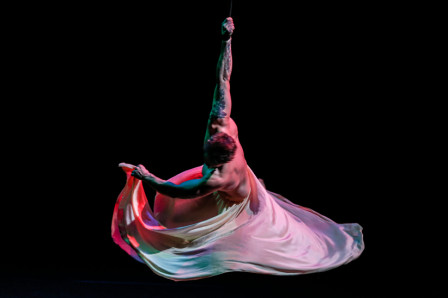
 Review: TUTU at Sadler’s Wells East
12 February 2026 at 08:52
Review: TUTU at Sadler’s Wells East
12 February 2026 at 08:52
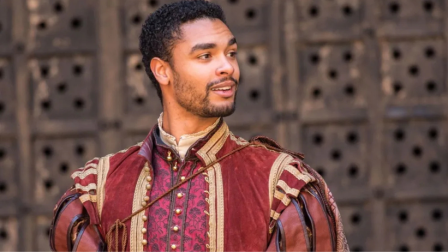
 Is The Great Gatsby, starring Regé-Jean Page, heading to the West End?
11 February 2026 at 15:40
Is The Great Gatsby, starring Regé-Jean Page, heading to the West End?
11 February 2026 at 15:40
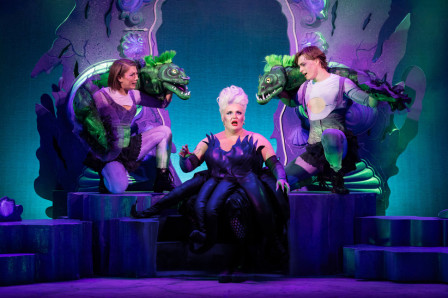
 Production photos of UNFORTUNATE: THE UNTOLD STORY OF THE SEA WITCH released
11 February 2026 at 15:14
Production photos of UNFORTUNATE: THE UNTOLD STORY OF THE SEA WITCH released
11 February 2026 at 15:14
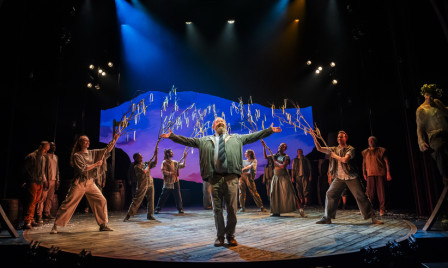
 Review Round-Up: THE UNLIKELY PILGRIMAGE OF HAROLD FRY at the Theatre Royal Haymarket
11 February 2026 at 14:19
Review Round-Up: THE UNLIKELY PILGRIMAGE OF HAROLD FRY at the Theatre Royal Haymarket
11 February 2026 at 14:19